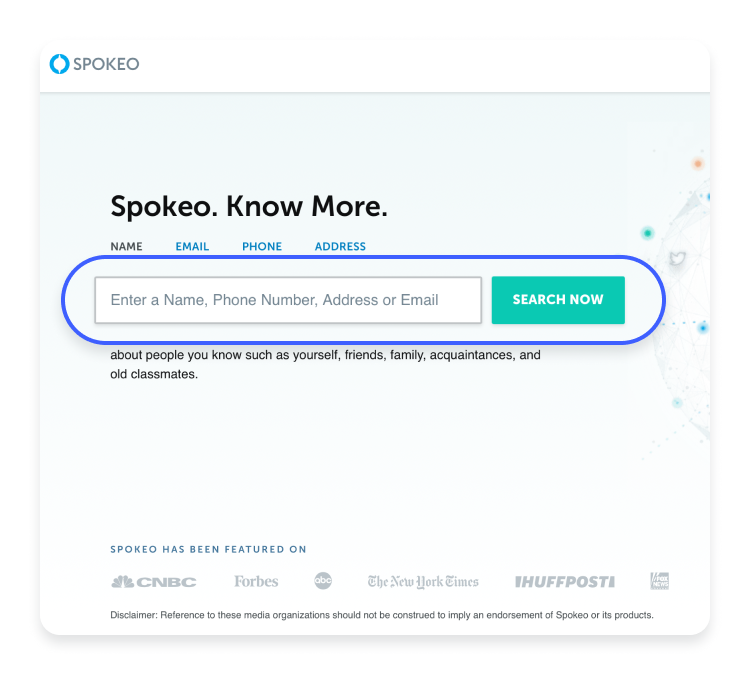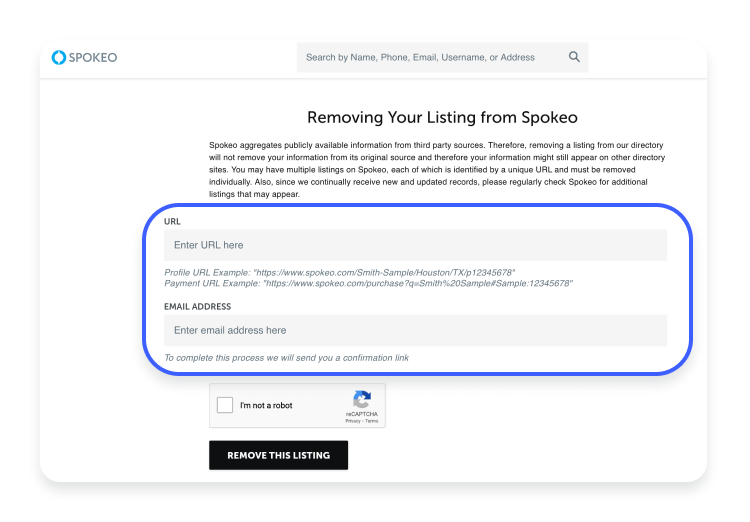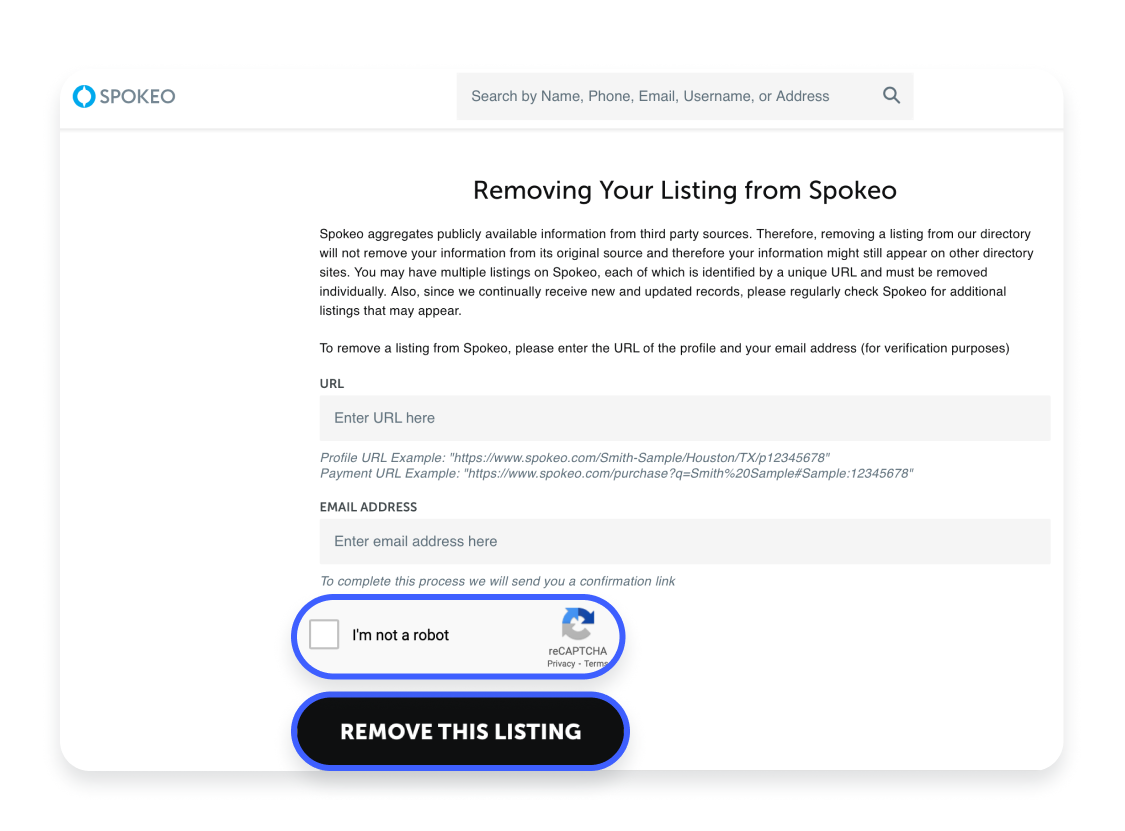Protect your data: Spokeo opt out guide
Opting out of Spokeo can protect your privacy and make identity theft less likely. In this article, we explain what Spokeo is, whether it is legal, and how you can remove your data from the site.
Table of Contents
Table of Contents
What is Spokeo?
Spokeo is a data broker site, a company that collects information about internet users and profits by selling that information to its own users.
Like most data broker sites, Spokeo gathers personal information online from publicly available sources, including government databases, social media sites, and many other online platforms. Data about an individual is compiled to form a profile with details on age, interests, location, income, and more.
As a result of their data-harvesting practices, they now claim to hold more than 12 billion records, but how does Spokeo work from the user’s side?
How does Spokeo work?
To use Spokeo, people search site records for details on specific individuals. To do so, they need to pay for Spokeo’s premium service and have some identifying information to search, like an email address or even just a name.
The user is then presented with relevant profiles which they can browse through until they find who they are looking for. A profile may contain photos of the person in question, along with past addresses, names of family members, and other data.
The good news is that you easily send a Spokeo opt out request, using the steps in this article.
Why opting out of Spokeo is important
Opting out of Spokeo is important if you want to maintain your privacy. While all the data points Spokeo gathers about you are individually available online already, collecting them in one place could allow people to find your home address, target you with harassment, and even steal your identity.
If Spokeo has a profile about you, one of their paying users just needs to search for you using (for example) your email address. This will then pull up every other record they have associated with you. In some cases, this can even include aerial images of your house, as well as employment information, credit details, and marriage status.
When you realize how much data the company is able to collect, you can’t help but wonder how Spokeo is able to get your information in the first place.
How does Spokeo get my personal information
Spokeo trawls the internet with bots that scrape data from publicly available pages. From government websites to social media sites, they scoop up information and match it to individual profiles.
You can limit how much information you personally post online, but a lot of your data is available through other sources as well. Databases like court records or voter registration lists could all be accessed, even if you never actively made that information public yourself.
Of course, this raises an important question. Does Spokeo have a legal right to collect your data like this?
Does Spokeo have the right to use my data?
Spokeo is technically within its rights as a company to gather your data and list that data on its site.
Because the information is all online already, Spokeo can argue that they are just collecting public data — a perfectly legal exercise. The problem, however, is that this data is normally dispersed widely across hundreds or even thousands of different locations, so until Spokeo gets involved, it’s much harder for bad actors to find your details and match them to you as an individual internet user.
The company is not without its legal troubles, either. Spokeo has been subject to multiple lawsuits and in 2012 was fined by the FTC for breaching the Fair Credit Reporting Act. The FTC found that Spokeo had marketed consumer profiles without ensuring they would be used for only legal purposes, among other related infractions.
While getting fined by the FTC isn’t a good look, Spokeo’s legal issues usually center around bad marketing practices and a lack of due diligence. The data gathering, on the other hand, is still legal. That’s why the best thing you can do is opt out of Spokeo, removing any information they have gathered about you.
Step-by-step guide to remove your information from Spokeo
Follow these steps to complete the Spokeo opt out process. Some of these steps take place on the main Spokeo website, before moving over to the official opt out page, but to follow these steps you may need to create a Spokeo account.
- Log into Spokeo and search for your email address.
- Right-click on “See results” and select “Copy link address” from the menu.
- Open the Spokeo opt out page.
- Paste the URL for your results page into the field marked “Enter URL here.”
- Input your email address.
- Follow the steps on screen to confirm that you’re not a robot.
- Open the Spokeo email in your inbox and click the confirmation link in that email to complete the process.



If for any reason this process doesn’t work or the verification link is broken, send an email to privacy@spokeo.com with the URL for your results page and request that your information is removed.
Alternatively, you can use an intermediary service to send data removal requests on your behalf. One great option is to sign up with Incogni, a service that will contact data brokers for you, saving you time and effort.
Will my data reappear on Spokeo after I opt out?
After a Spokeo opt out request, your data won’t reappear as a listing for that specific email, but it could appear again under different emails, or under different configurations of your name (e.g., initials, maiden names, middle names).
To completely wipe yourself from the site, repeat the procedure described above for every profile that comes up when searching your identifiable information on the site.
Bear in mind, however, that your data may not be listed on the site in the first place. Unless you pay for access to the site, you can’t see what information is linked to a profile, and searching any email address (including verifiably fake addresses) will generate a claim from the website that it has found a relevant profile.
Dealing with data brokers like Spokeo might leave you feeling like your data is harder than ever to protect but you still have options for shielding your data. The importance of privacy cannot be overstated, so you should take any steps you can to protect it.
Protect your privacy online
With a few simple steps, you can strengthen your internet privacy and keep your data safe from prying eyes. It is important to note that some information — like the kind gathered by Spokeo — will still be online whatever you do, but you can still limit how much additional data exposure you incur.
- Keep social media accounts private. If you’re worried about identity theft, keeping your profiles private is a must. All social media platforms have privacy settings that will allow you to restrict who can view your content and personal details. Obviously, an even safer option is to not use social media at all, but many people won’t be willing to go down that road, but privacy on social media is still important.
- Request that data broker sites remove your data. Spokeo is just one of many companies gathering your data, and many of them have opt-out processes. Even if they don’t you can still contact them directly and request that they remove your information from their site. For example, removing your information from FastPeopleSearch is relatively straightforward. So take a moment to learn how to remove data from people-finder sites – the fewer brokers hold your records, the better.
- Use a VPN. A virtual private network, or VPN, cloaks your browsing traffic with encryption and hides your IP address online. This prevents your internet service provider from monitoring your activity and selling that data to other companies, and stops websites seeing your virtual location information. With NordVPN, you also opt to use Threat Protection Pro, a feature that blocks ads and online trackers.
